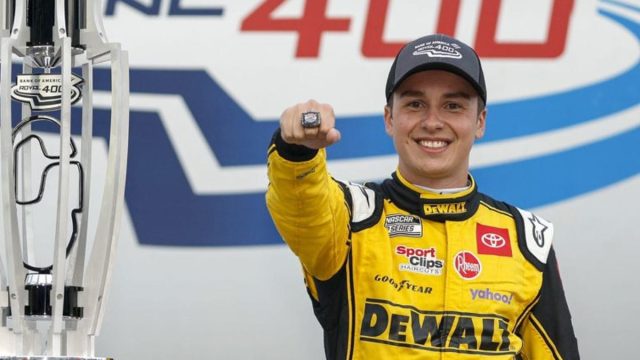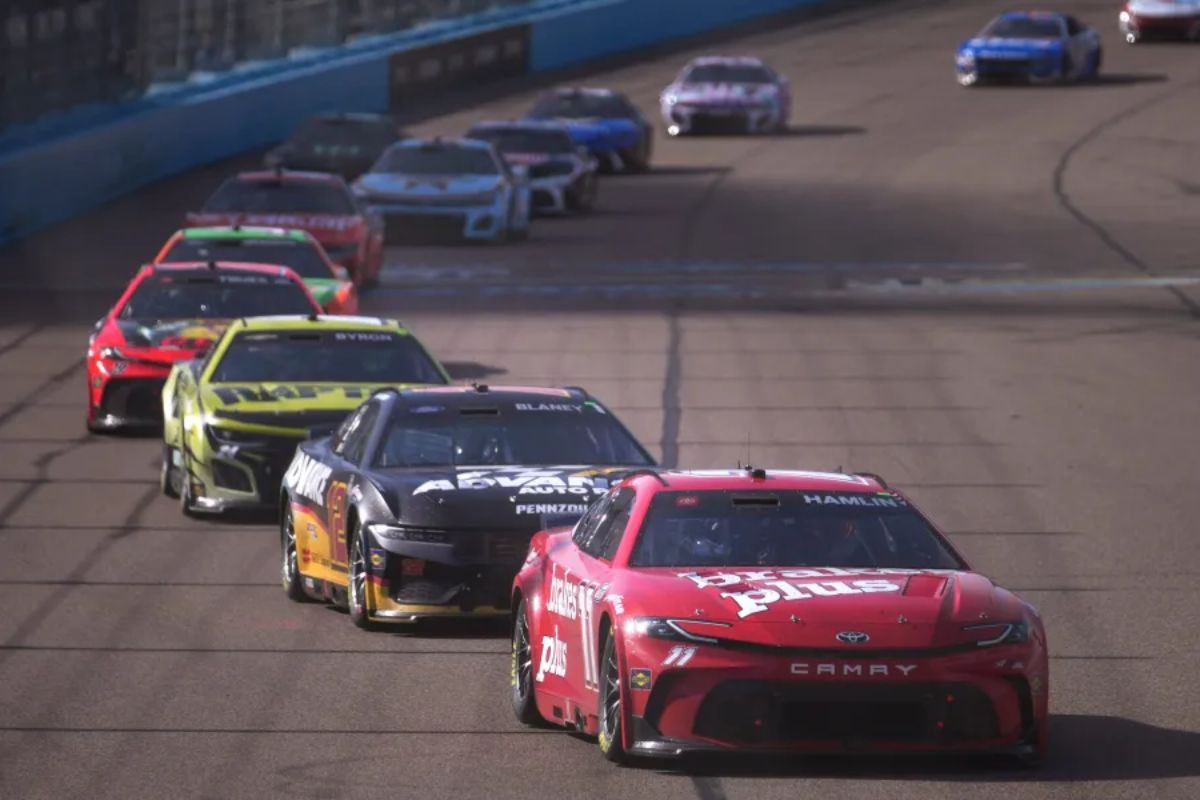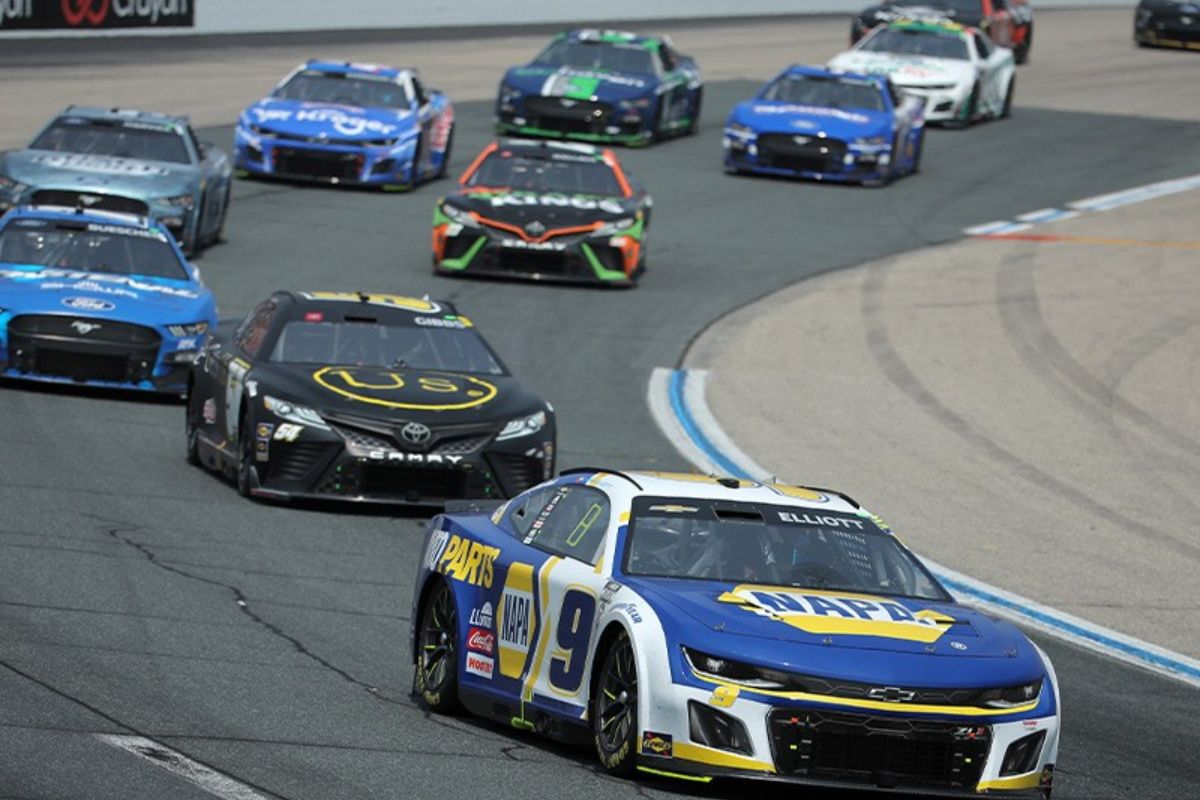Christopher Bell on Aggressive Cup Drivers’ Strategies: Christopher Bell‘s recent observations regarding the aggressive strategies employed by Cup drivers raise critical questions about the evolving landscape of NASCAR. As the Next Gen cars enable bolder tactics, we must consider whether this shift is merely a reflection of competitive spirit or a potential strain on NASCAR’s established safety protocols. Bell’s insights reveal a tension between innovation and tradition, suggesting a crossroads that could redefine racing norms. As the sport cover with the consequences of this behavior, the pressing question remains: how far can these strategies go before they provoke a necessary response from NASCAR?
Key Highlights
- Christopher Bell highlights how advanced vehicle technology encourages aggressive driving, challenging traditional racing decorum and safety norms among drivers.
- The “win and you’re in” mentality promotes risk-taking, leading drivers to prioritize bold maneuvers over safety.
- Current points systems and competitive formats may incentivize reckless behavior, testing NASCAR’s patience with driver conduct.
- Increased durability of the Next Gen cars allows for riskier tactics without significant repercussions, complicating safety concerns.
- Bell’s insights emphasize the urgent need for reassessment of accountability measures to enhance overall safety in NASCAR.
Next Gen Cars and Aggressive Driving
Embracing aggressive driving has become a hallmark of the Next Gen cars in NASCAR, reflecting a notable shift in competitive strategy. The introduction of these vehicles has transformed the racing landscape, allowing drivers to experiment with bold tactics that were previously deemed too risky. This evolution is particularly evident in the wake of Ross Chastain’s audacious wall ride during the 2022 season, a move that was inspired by the virtual racing world and highlighted the new cars’ resilience.
The Next Gen cars were designed with improved durability and safety in mind, aiming to mitigate the risks associated with high-speed collisions. However, this very durability has emboldened drivers to push the limits of their vehicles, leading to a more dynamic and unpredictable racing environment.
With reduced speeds and improved structural integrity, drivers are now able to execute daring strategies that capitalize on the cars’ capabilities, as seen in the chaotic yet thrilling Watkins Glen race.
This shift has amplified the excitement for fans and prompted teams to reevaluate their racing strategies. As drivers adapt to the evolving dynamics of the Next Gen cars, the competitive landscape will likely continue to be marked by heightened aggression and cutting-edge tactics.
Safety Concerns and Driver Aggression
The surge in driver aggression within NASCAR, particularly with the introduction of Next Gen cars, has raised critical safety concerns. While the improved safety features of these vehicles are widely appreciated, they may inadvertently encourage reckless driving behavior. The structural integrity of the Next Gen cars allows drivers to engage in aggressive tactics, including using their vehicles as ramming tools, without facing major damage.
This shift has led to a culture where the perceived consequences of aggressive actions are diminished, prompting drivers to push the limits of acceptable racing conduct. Christopher Bell, a driver for Joe Gibbs Racing, has vocalized these concerns, highlighting a troubling trend among competitors who feel emboldened to take risks that could hampers both their safety and that of others on the track.
If this trend continues unchecked, it could lead to a higher incidence of accidents, potentially resulting in serious injuries or worse. Consequently, NASCAR must consider implementing stricter regulations and penalties to mitigate this aggressive behavior, ensuring that the thrill of competition does not come at the cost of safety.
Christopher Bell’s Insights on Driving Behavior
How has the evolution of vehicle technology influenced driving behavior in NASCAR? The introduction of Next Gen cars has fundamentally altered the dynamics of racing, as shows by Christopher Bell’s recent observations. He noted a notable shift in driver etiquette and respect on the track, particularly since midway through the 2022 season.
“The biggest thing that I have noticed as far as respect on the track and etiquette is that it really changed, probably midway through the 2022 season.”-(CHRISTOPHER BELL)
This change can be traced back to the improved performance characteristics of these vehicles, which allow drivers to approach corners with greater aggression. The notion that drivers no longer need to decelerate notably while steering through turns—especially when they can rely on bumping into a car ahead—illustrates a growing trend of risk-taking behavior.
“The NextGen car came out, and as we started to run it, we drivers learned how durable it is…You’re able to get away with contact and not damage your car and hinder your own race. It has definitely enticed people, especially on the road courses, to make sure you’re the one on offense and not defense.”-(CHRISTOPHER BELL)
This tactic, while appearing tactical, raises concerns about safety and the general integrity of racing. Bell’s insights reveal an uncomfortable reality: as the capabilities of the Next Gen cars have expanded, so too has the willingness of drivers to exploit these advancements, often at the expense of traditional racing decorum.
Moreover, Bell’s commentary suggests that the competitive landscape is evolving into one where respect is supplanted by a willingness to engage in more aggressive tactics. This shift not only challenges NASCAR’s historical values but also tests the patience of governing bodies tasked with ensuring fair competition and driver safety.
Fans’ Reactions and Opinions on Aggression
Fans of NASCAR are increasingly vocal about their perspectives on the rising aggression among drivers, particularly in view of the recent changes brought by the Next Gen cars. The discussions surrounding this trend have become heated, especially following Christopher Bell’s recent observations. While Bell expressed a neutral stance, advocating for open dialogue among drivers, fans took to platforms like Reddit to voice their opinions, revealing a spectrum of reactions.
“Between the car being incredibly strong and a points system that puts so much emphasis on winning, there really aren’t any consequences for drivers making mistakes.”-(FANs’ REACTON)
Many fans are concerned about the implications of unchecked aggression in racing. The ethical dilemma of who should maintain order—drivers or NASCAR’s governing body—has become a focal point for debate.
“Sorry, Chris, the ethics part of the rulebook just says, ‘Boys have at it.”-(FANs’ REACTON)
Fans have proposed numerous solutions, showcasing their varied views on how to address the issue:
- Introduce stricter penalties for aggressive driving to deter reckless behavior.
- Encourage drivers to adopt a code of conduct that prioritizes safety.
- Implement more robust oversight from NASCAR to monitor driver behaviors.
- Foster a culture of respect among racers to mitigate on-track conflicts.
This array of suggestions demonstrates the complex relationship between fan expectations and driver behavior. Some fans welcome the excitement that aggression brings to the sport, while others argue that it undermines the integrity of racing.
As NASCAR navigates this evolving landscape, the voices of its fanbase will play a critical role in shaping the future of competitive driving. Ultimately, finding a balance between thrilling competition and responsible conduct remains a pressing concern for both drivers and the governing body.
Root Causes of Aggressive Driving and Accountability
Aggressive driving in NASCAR has deep-rooted causes that extend beyond individual driver behavior and reflect broader structural issues within the sport. The evolution of vehicle durability, particularly with the Next Gen models, has led to an environment where drivers feel emboldened to take greater risks. The increased robustness of these cars allows for more aggressive tactics without the immediate fear of catastrophic failure, fostering a culture of recklessness that was less prevalent with older models.
Moreover, the current points system greatly influences driver behavior. The emphasis on securing wins to advance in playoffs diminishes the repercussions of aggressive driving. As one fan insightfully noted, the absence of consequences for mistakes creates a cycle of risky decisions. This “win and you’re in” mentality can lead to a disregard for safety protocols, as drivers may prioritize race outcomes over prudent driving.
“Championship format doesn’t help. Win and you’re in system is dumb af..”-(FANs’ REACTION)
Additionally, the playoff format itself has been critiqued for encouraging this aggressive mindset. The framework incentivizes drivers to take bold actions rather than adopt a more measured approach necessary for long-term success. Consequently, the lack of accountability within these frameworks not only perpetuates aggressive driving but also raises concerns regarding the general safety of the sport.
These issues, must reevaluate the design of both the vehicles and the competitive formats. A thorough approach that incorporates stringent accountability measures and a reassessment of the points system could pave the way for a safer, more tactical racing environment.
News in Brief: Christopher Bell on Aggressive Cup Drivers’ Strategies
Driving strategies among Cup drivers, particularly with the introduction of Next Gen cars, raises considerable concerns regarding safety and competition within NASCAR. The increased durability of these vehicles encourages riskier tactics, challenging traditional racing etiquette. Christopher Bell’s observations highlight the urgent need for NASCAR to address aggressive driving behavior through stricter regulations. Ultimately, finding a balance between fostering competitive spirit and ensuring the safety of all participants remains a critical challenge for the sport’s future.
ALSO READ: Christopher Bell Clears Austin Dillon of Dirty Winner Label: What Really Happened?



